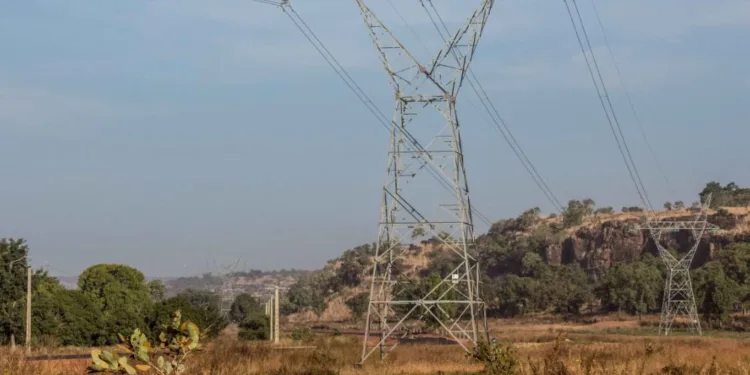The Economic Community of West African States (ECOWAS), has disclosed that only 10% of rural communities in the region have access to electricity as of last year (2023).
In a statement in which this disclosure was made, ECOWAS Commissioner of Infrastructure, Energy & Digitalization, Sediko Douka noted that the region’s electricity sector also faced a low level of intra-regional electricity exchanges, putting it at 9%.
Fintech Telex understands that the grim figures represent the stark contrast to the overall increase in electricity access across the region, which has risen from 45% in 2019 to an average of 53% in the period under review (2023).
“The energy sector, which is one of ECOWAS’s main areas of action, has an installed production capacity of 25,421 GW, distributed as follows: 77% thermal, 22% hydro, 1% solar/wind.
“The rate of access to electricity has increased from 45% in 2019 to an average of 53% in 2023.
“Despite this increase, there were significant disparities as the electricity access rate in rural areas is standing at only 10%,” the ECOWAS chief stated.
How erratic power supply is crippling the region’s economy
West Africa is a region brimming with potential. From its fertile lands to its burgeoning industries, the future seems bright. However, a persistent shadow looms large – an erratic power supply. This lack of reliable electricity chokes the region’s economic growth, hindering businesses, stifling innovation, and dampening overall prosperity.
The impact is felt across every sector. Businesses, the lifeblood of any economy, are forced to operate under a constant threat of disruption. Power outages halt production lines, disrupt communication, and damage sensitive equipment. This translates to lost revenue, missed deadlines, and a reluctance to invest in expansion.
Also Read: Health Workers In Africa Can No Longer Migrate To UK With Their Partners As Dependents
Imagine a factory producing textiles. Erratic power forces them to constantly switch to generators, increasing production costs and making them less competitive in the global market.
Small and medium-sized enterprises (SMEs), the backbone of many West African economies, are particularly vulnerable. Many lack the resources to invest in backup generators, leaving them at the mercy of the grid. This hinders their ability to grow and create jobs, further stalling economic progress.
The issue extends beyond lost productivity. Erratic power discourages foreign investment. Businesses are hesitant to set up shop in a region where reliable electricity, a fundamental necessity, cannot be guaranteed. This lack of investment stifles innovation and the transfer of technology, hindering West Africa’s ability to diversify its economy and move up the global value chain.
The ramifications extend to essential services. Hospitals struggle to maintain proper storage for vaccines and medications, jeopardizing public health. Schools cannot provide consistent computer-aided learning, hindering educational development. This lack of reliable power creates a vicious cycle, perpetuating poverty and limiting opportunities for future generations.
How ECOWAS is addressing West Africa’s electricity challenges
ECOWAS has established specialized agencies in the energy sector to tackle various challenges. These agencies include the West African Power Pool (WAPP) located in Cotonou, Benin, the Regional Electricity Regulatory Authority (ERERA) based in Accra, Ghana, the Centre for Renewable Energy and Energy Efficiency (ECREEE) situated in Praia, Cape Verde, and the West African Gas Pipeline Authority (WAGPA) headquartered in Abuja, Nigeria.
In addition to these agencies, ECOWAS has implemented several measures to address energy-related challenges in the region. One significant initiative is the implementation of the WAPP Master Plan, covering the period from 2019 to 2033. This plan outlines 75 regional projects valued at USD 36 billion, aimed at constructing 23,000 km of power interconnection lines and generating 16,000 MW of electricity.
Also, ECOWAS launched and operationalized the Regional Electricity Market in 2018. This market serves as a platform for trading electricity among member states, fostering regional cooperation and enhancing energy security. Furthermore, ECOWAS has been actively promoting renewable energy sources to reduce dependency on fossil fuels and mitigate environmental impact. Programs aimed at improving electricity access, both through on-grid and off-grid networks, have also been rolled out to ensure that communities across the region have reliable and sustainable energy access.
These measures underscore ECOWAS’s commitment to addressing energy challenges and fostering sustainable development in West Africa. By leveraging regional cooperation and investing in critical infrastructure and renewable energy, ECOWAS aims to create a more resilient and inclusive energy sector that benefits all member states and their populations.










